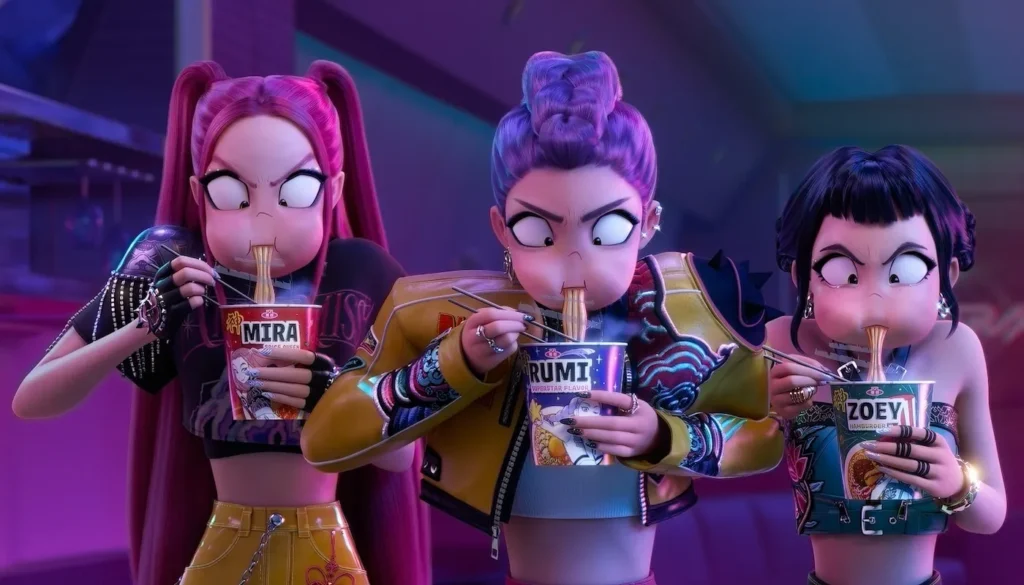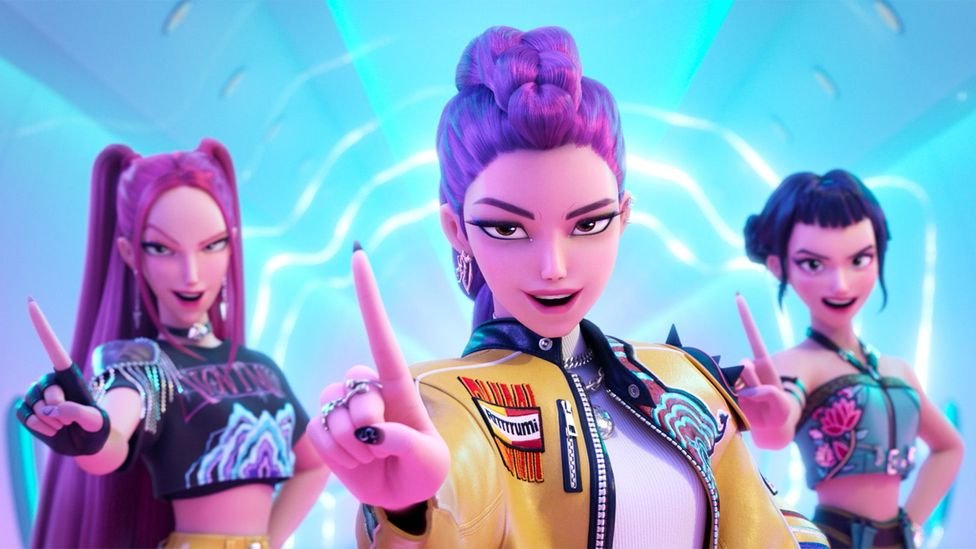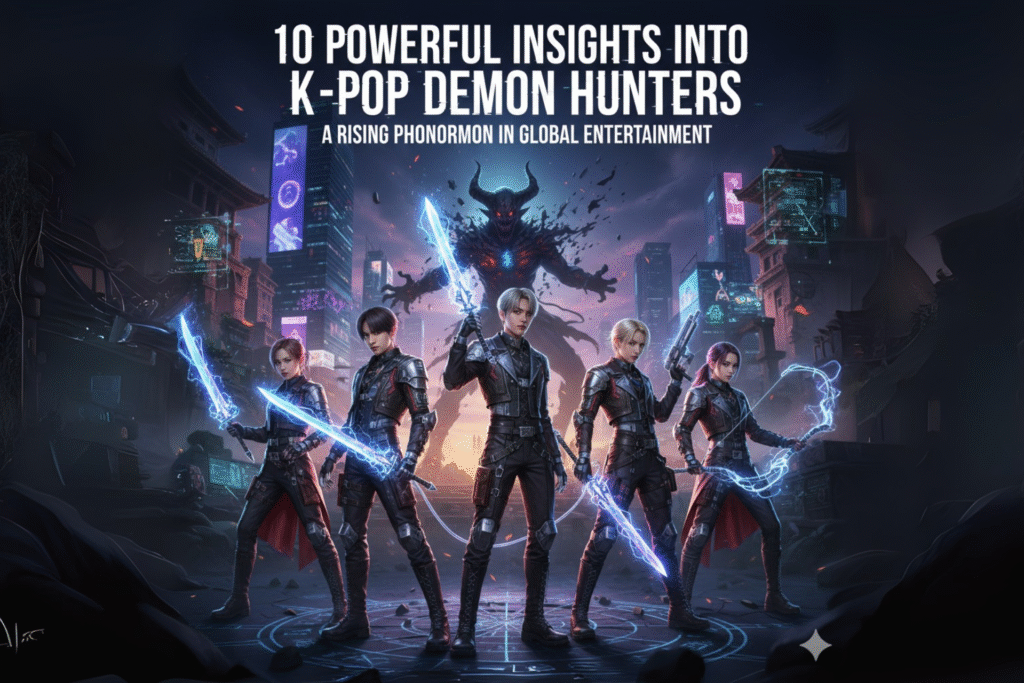Introduction to KPop Demon Hunters
The KPop industry is known for reinventing itself. Each generation of idols brings a new flavor, blending music, dance, fashion, and storytelling. In this evolving landscape, KPop Demon Hunters has emerged as one of the most intriguing cultural experiments.
It goes beyond typical idol performances by creating an immersive storyline that mixes Korean mythology, anime-inspired visuals, and symbolic storytelling. The result is an entertainment package that resonates with both domestic and international fans.
At its core, KPop Demon Hunters isn’t just about songs or visuals—it’s about building a universe. Just like Marvel created the MCU, KPop creators are developing a fantasy-driven musical universe that fans can participate in, theorize about, and emotionally invest in.
The Origins of KPop Demon Hunters
Inspiration from Korean Folklore
Korean folklore has long featured tales of demons, spirits, and heroic warriors. Stories of gwisin (ghosts), dokkaebi (goblins), and divine protectors form a rich cultural foundation. KPop Demon Hunters borrow heavily from these myths, blending them into modern narratives that fans find both nostalgic and refreshing.
For example, some idol groups portray their members as reincarnated warriors destined to fight demons—a direct nod to shamanistic traditions. By reviving these age-old myths, the subgenre connects younger audiences with cultural heritage in a modern, stylish way.
Influence of Global Anime and Gaming
Another major influence comes from anime and RPG gaming culture. Titles like Demon Slayer and Final Fantasy have shaped global entertainment tastes, and KPop producers are taking cues. Costumes, stage sets, and music videos often resemble epic anime battles or fantasy game cutscenes.
This strategy not only captures fans already invested in anime and gaming but also helps KPop Demon Hunters stand out in a competitive industry.
Why KPop Demon Hunters Captures Attention
Unique Concept Blending Music and Myth
The concept itself is revolutionary. Instead of ordinary music performances, idols embody characters with supernatural backstories. Each comeback tells another chapter of the ongoing saga, turning concerts into theatrical experiences.
Fans are not just watching music videos—they’re decoding lore, connecting symbolic clues, and anticipating plot twists. This creates deep engagement, far stronger than casual music listening.
Visual Storytelling in Performances
Every detail—from costumes to choreography—advances the narrative. For instance:
- A dance routine may symbolize sealing away a demon.
- Stage lighting may switch between red and white to represent the battle between good and evil.
- Props like swords, amulets, or chains often hold symbolic meaning.
This level of visual storytelling transforms each performance into a piece of live-action mythology, keeping fans hooked.






Global Popularity of KPop Demon Hunters
Social Media Virality
One of the biggest reasons behind the global rise of KPop Demon Hunters is social media amplification. Platforms like TikTok and Instagram thrive on visually rich content, making short clips of epic battles or mystical performances highly shareable.
Fancams often go viral, with audiences fascinated by the sheer creativity. Hashtags like #KPopDemonHunters generate millions of impressions worldwide.
International Fan Communities
International fans play a huge role in boosting the movement. Online forums, Discord servers, and Twitter communities actively discuss theories, translate lyrics, and organize watch parties. The global fandom makes sure that even those unfamiliar with KPop are drawn into this new cultural wave.
Character Archetypes in KPop Demon Hunters
The Heroic Demon Hunter Persona
Every group typically has at least one member playing the “chosen one” archetype. They embody courage, resilience, and justice. Their performances often show themes of sacrifice and leadership, resonating strongly with fans who admire strength and bravery.
The Dark Villain Archetype
Equally fascinating are the villain roles. Some members take on darker personas, embodying fallen angels or cursed warriors. These characters add complexity, showing that even “evil” figures can be sympathetic or misunderstood. This duality makes the storytelling richer and more dynamic.
Music, Lyrics, and Symbolism
Hidden Meanings in Lyrics
The lyrics in KPop Demon Hunters are filled with symbolism and allegory. References to demons often reflect internal struggles like anxiety, fear, or temptation. Demon hunting becomes a metaphor for self-growth and resilience.
For example, a song may speak about “slaying the shadows,” which fans interpret as overcoming depression or societal pressure. This emotional depth is one of the subgenre’s strongest appeals.
Choreography as a Narrative Tool
Dance is more than just synchronized moves—it’s narrative. Every spin, jump, and gesture has meaning. For instance:
- Chains in choreography may represent breaking free from inner demons.
- Synchronized battle poses mimic traditional martial arts, adding realism to the fantasy.
Fans study these details obsessively, adding layers of interpretation to every performance.
Fan Theories and Community Interpretations
Fans are not passive consumers; they are active participants. Online spaces are filled with fan theories connecting different comebacks into a unified lore. Some suggest idols are reincarnated warriors, while others believe hidden symbols reveal future story arcs.
This active theorizing fosters strong community bonds, as fans collaborate to decode mysteries together.
The Role of Technology and AI in Promotion
AI-driven marketing has also boosted KPop Demon Hunters. Augmented reality (AR) concerts allow fans to see idols battle demons in real-time. AI translation tools make global engagement seamless. Even AI-generated teasers spark speculation, building hype before official releases.
The fusion of tech and fantasy ensures that this subgenre feels futuristic while staying rooted in traditional themes.
Comparison with Other KPop Subgenres
Compared to genres like Bubblegum KPop or Dark Concept KPop, Demon Hunters offers a unique balance of darkness and hope. It is more narrative-driven than romantic ballads and more visually symbolic than standard pop performances.
This distinction helps it attract not only traditional KPop fans but also anime enthusiasts, gamers, and mythology lovers.
Economic Impact and Market Growth
The commercial impact is significant:
- Merchandising: Fans buy symbolic swords, cloaks, or jewelry seen in performances.
- Streaming: Lore-rich music videos drive repeated views, boosting ad revenue.
- Concerts: Theatrical, story-driven shows sell out faster due to immersive experiences.
Agencies have realized that KPop Demon Hunters is more than a trend—it’s a profitable ecosystem blending entertainment, fashion, gaming, and culture.
FAQs on KPop Demon Hunters
Q1. What makes KPop Demon Hunters different from regular KPop?
It combines music with fantasy storytelling, mythology, and performance art, making it more immersive than standard idol performances.
Q2. Are the demon concepts religious or cultural?
They are primarily inspired by Korean folklore and global fantasy tropes, not tied to any specific religion.
Q3. Why do international fans love KPop Demon Hunters?
Because it blends universal themes like good vs. evil with visually stunning performances and deep emotional storytelling.
Q4. Which KPop groups are leading this trend?
While emerging groups are spearheading it, even major labels are experimenting with demon hunter-inspired concepts.
Q5. Is the concept just a fad?
Industry analysts suggest it’s a long-term trend because it creates an entire universe that fans can engage with—similar to Marvel or anime franchises.
Q6. How can new fans get into KPop Demon Hunters?
Start by watching official music videos, join online fan communities, and explore translated lore discussions.
Conclusion
KPop Demon Hunters is more than a musical experiment—it’s a cultural revolution. By blending mythology, anime aesthetics, and emotional storytelling, it captures the imagination of fans across the globe. Its ability to merge tradition with futuristic technology positions it as a defining subgenre in KPop’s global expansion.
Whether you’re a casual listener or a dedicated fan, diving into this universe feels like stepping into an epic saga—one where music, mythology, and meaning collide.















